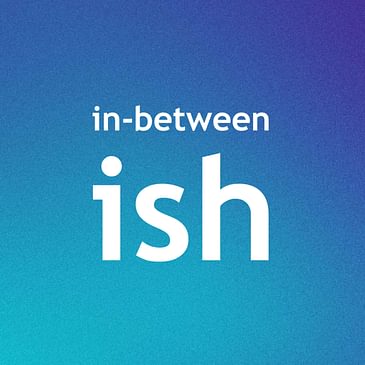Refugee, asylum seeker, internally displaced person, migrant, immigration—the news is abuzz with some of these terms. But do you truly grasp the differences between them?
Join Baharak Bashmani and me as we fearlessly delve into this complex topic, breaking it down into simple terms. With Baharak's unique perspective as a former refugee, having experienced the entire journey from displacement to resettlement, and her work with the UNHCR assisting fellow refugees, she offers valuable insights.
In this thought-provoking episode, we explore:
- Defining the terms, debunking misconceptions, and addressing stigmas
- Uncovering the reasons why people flee and where they go
- Navigating the process from displacement to resettlement
Our motto: No question is taboo, all questions are welcome.
Episode Mentions
- UNHCR Hope Away From Home — This year’s theme for World Refugee Day (June 20) is Hope Away From Home
- Give — Support the creation of scholarships for young refugees by donating to our Aiming Higher campaign.
- Create — Join UNHCR’s global art contest, which will launch on 20 June, and get a chance to design shirts that will raise funds for refugees.
- Learn — 5 ways you can support refugees
- Welcome — things you can do to make refugees feel welcome
- Education — The 1951 Refugee Convention: Legal document that define the term 'refugee' and outlines their rights and the international standards of treatment for their protection.
- Education — Universal Declaration of Humans Right — foundational document that establishes a set of 30 fundamental rights and freedoms that apply to all individuals around the world, regardless of their nationality, race, religion, or gender.
- Hope Away From Home — article by Baharak Bashmani, found in Rooted in B
- World Refugee Day — article by Baharak Bashmani, found in Rooted in B
- Rooted in B — Baharak’s blog where she explores notions of home, layers of identity and belonging
- 🌳 Notions of Home — inbetweenish episode with Baharak where we explore her personal life journey
- Mo — Netflix series written by Mohammed Amer and Ramy Youssef Illustrating the life of a Palestinian family as they navigate the convoluted US immigration system
-
More about: Baharak Bashmani (aka B)
Instagram | Blog
-
Curious about the in-betweenish pod
Chat with Beatriz on Instagram
Behind the Scenes on TikTok
Anything else? Contact Us Here
The in-betweenish pod is produced by Beatriz Nour
Music is composed and produced by Malik Elmessiry


